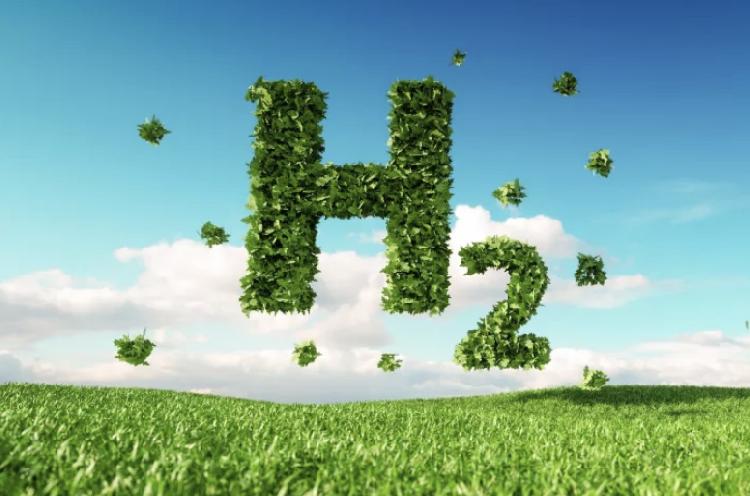Africa-Press – Namibia. OTHER than its plans of becoming Africa’s first green hydrogen export hub, Namibia aims to use its green hydrogen potential to evolve its economy from one dominated by the primary sector, into one which derives significant value from the secondary sector.
According to Namibia’s green hydrogen commissioner, James Mnyupe, the government is already in talks with various investors on the possibility of setting up local manufacturing plants that will enable the processing of the country’s raw materials.
Mnyupe responded to questions The Namibian mailed to him recently.
The government is also exploring the possibility of setting up a local zinc refinery, which over time will use clean electricity, enabling Namibia to become one of the world’s first producers of green zinc, he said.
Various original equipment manufacturers are also being approached, as the government plans on setting up local plants to make or assemble solar panels, wind turbines, electrolysers, batteries, pipelines, transmission lines and other key components of the envisioned value chain.
“Of course, all of these opportunities may warrant local manufacturing and or assembly of the various components that will be used to make the above possible,” Mnyupe said.
Green hydrogen will be produced in Namibia by private enterprises that will look to use it to engender the green economy in Namibia, the region and the globe.
This hydrogen, Mnyupe said, will be used to make ammonia, reduce iron ore mining, manufacture fertilisers, manufacture explosives, produce fuels for various transportation solutions and many other applications will be explored as business cases warrant such exploration.
ELECTRICITY
Mnyupe said green hydrogen projects could provide Namibia with an opportunity to reverse the status quo, where Namibia is a net importer of electricity, to one where Namibia becomes self-sufficient, and in time, a net exporter of electricity into the region.
Namibia produces about 40% of its energy requirements, while about 60% is imported from neighbouring countries through the Southern African Power Pool (SAPP).
“The Namibian government intends to investigate the viability of NamPower being able to off-take some of this excess electricity into our national grid for local consumers and potentially sell excess electricity into SAPP, generating a new business opportunity for the power utility,” Mnyupe said.
He said clean and affordable electricity should enable the country’s electricity industry, which abides by the principles of a cost reflective tariff, to gradually lower the cost of energy for the average Namibian household and industrial consumer as well.
“This could contribute very positively to Namibia’s global competitiveness and augment its ability to attract energy intensive industries,” Mnyupe said.
On top of that, Mnyupe said the cost of desalinated water, which is needed in the production of green hydrogen, will be so low relative to the cost of hydrogen production (less than 1%), that the government expects excess capacity can be developed and water can be provided to adjacent communities, municipalities and/or the national water utility at very affordable prices, he claimed.
FUNDING
Hydrogen is an expensive bet for Namibia. The preferred bidder for the country’s first large-scale green hydrogen project, Hyphen Hydrogen Energy, estimates its project will cost around US$10 billion, said Mnyupe.
So far, the government has managed to secure more than N$1,5 billion in grants and is in discussion with the European Investment Bank to negotiate a funding facility of more than N$8,7 billion to fund the delivery of renewable electricity and clean hydrogen-related assets.
Various private sector players have also publicly announced plans to raise and deploy more than N$245 billion to build various projects across the country.
“We expect this figure will grow as the rest of the green economy we have identified, comes on stream,” he said.
Since the launch of the Harambee Prosperity Plan II (covering the period 2021-2025), the government, through economic diplomacy channels, secured more than N$700 million of grant funding from the German government, specifically the German Ministry of Education and Research.
This money was provided to Namibia to realise its ambitions of developing a local industry and preparing Namibian businesses and scholars to enter and develop this industry at home.
The funding was divided into three separate programmes; N$88 million was allocated to fund a national synthetic fuels strategy and associated studies.
Some of this funding was used to develop the recently launched National Synthetic Fuels Strategy, which was launched in Namibia and at COP27 in Egypt last year.
“The government will look to fund further feasibility studies with the remainder of the money, with the aim of developing the three identified green hydrogen valleys in the strategy,” Mnyupe said.
Another N$88 million was set aside to develop a scholarship programme related to the clean hydrogen industry.
According to Mnyupe, the first round unearthed 1 600 applications and resulted in 60 Namibian students being identified to receive scholarships to study in Namibia and/or in Germany in programmes that are related to the clean hydrogen industry.
The government has also developed a pilot project programme which looked for Namibian and German businesses that wanted to set up local green hydrogen related businesses and for tertiary institutions that wanted to run relevant research projects.
About 23 applications were received and four projects were shortlisted as potential beneficiaries of the more than N$500 million that has been earmarked for this part of the programme.
The Daures Green Hydrogen Village, which is expected to start construction activities this year, is one of the funding beneficiaries, Mnyupe said.
For More News And Analysis About Namibia Follow Africa-Press






